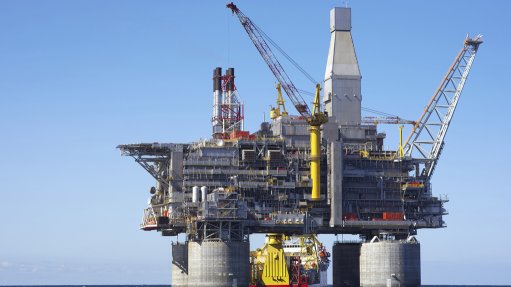
SAFETY ENSURED ON SITE A considerable amount of gas and flame detectors are required to guarantee the safety of all on-site
Over $3-million worth of General Monitors (GM) fixed flame and gas detection products have been supplied to the Egina offshore oilfield by safety products manufacturer MSA Africa, which forms part of the Total Upstream Nigeria project.
MSA Africa supplied the products to a major engineering, procurement, commissioning and installation (EPCI) contractor working in the oil mining lease (OML) area. The EPCI work is expected to be completed by the second quarter of 2017.
Discovered in 2003, the Egina oilfield is located in OML 130, about 100 km off the Nigerian coast, south of Port Harcourt in the Rivers state. Situated at a water depth of up to 1 700 m, the Egina oilfield is the second development of the OML 130 licence.
Given the large-scale nature of the project, a considerable amount of gas and flame detectors are required to ensure the safety of all on-site employees and to prevent any damage to infrastructure.
MSA Africa director Colin Oliver believes that the company was selected for the project, owing to its strong regional presence and its reputation for its high-quality and durable fixed gas detection range.
“MSA’s GM range of fixed gas equipment features highly reliable and robust industrial devices. “MSA Africa already has an extremely strong presence in Nigeria, with more than 20 fully trained staff members who are certified to carry out product training, as well as all repairs and maintenance on the equipment, as part of our value-added after-sales and technical support offering,” he says.
Oliver adds that GM is a well-known and trusted brand in Nigeria, Angola, Gabon and Ghana, is recognised as a global leader in high-tech gas monitoring and flame detection instrumentation, and has been under the MSA umbrella since 2010. He explain that this has enabled the company to provide fully comprehensive gas detection solutions to industries in these regions in the most competitive turnaround times.
MSA Africa supplied about 1 000 fixed gas and flame detector products to the project during the course of 2015, with the final shipment arriving in December that year. “In order to make the shipping process more cost-effective, the units were shipped in large quantities. “This did raise logistical issues, however, we still managed to meet the stipulated deadline,” adds Oliver.
He states that he is optimistic of the future’s outlook, given the success of this project. “Oil, gas and petroleum exploration is becoming increasingly viable in Africa. MSA Africa is already a well-established and trusted brand in the region and, as more capital is invested in this industry, I am confident that we will remain top of mind for all safety-related solutions,” he points out.
As a manufacturer of safety products, MSA Africa provide devices and protective gear that protect people and facility infrastructures. This is the result of countless research and development hours, continuous testing, and commitment to quality. The company’s comprehensive line of products is used by workers around the world in a broad range of markets, including the oil, gas and petrochemicals industry, the fire service, the construction industry, mining and the military.
Many of MSA Africa’s most popular products integrate multiple combinations of electronics, mechanical systems, and advanced materials to ensure that users around the world remain protected in even the most hazardous of situations. In eight of the past ten years, MSA Africa has achieved record growth numbers, with yearly revenues of more than $1-billion.